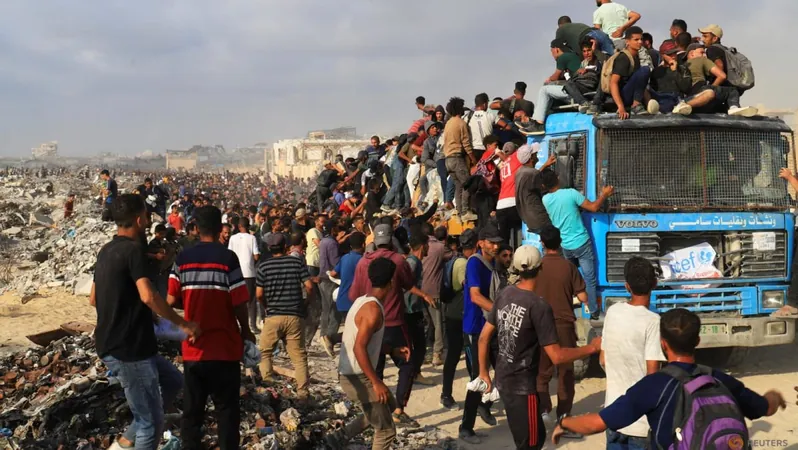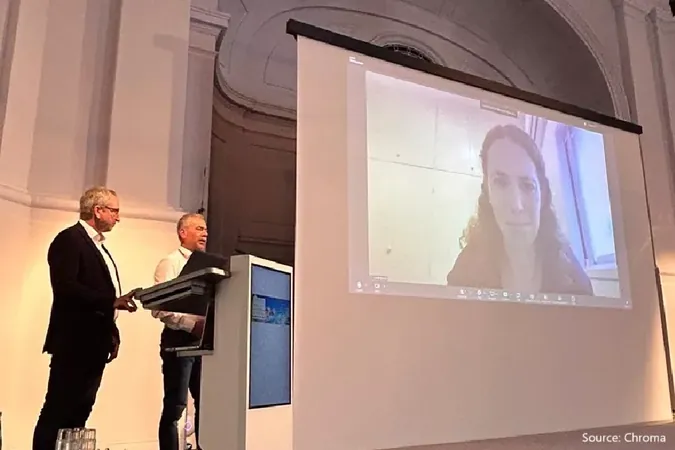
Harrowing Reality: UN Declares Food Weaponization in Gaza a War Crime
2025-06-24
Author: John Tan
UN Sounding the Alarm on Gaza's Humanitarian Crisis
In a powerful statement from Geneva, the United Nations human rights office has taken a firm stand on the recent crisis in Gaza, asserting that the "weaponisation" of food against civilians amounts to a war crime. This marks one of the starkest warnings regarding the contentious aid distribution efforts led by an Israeli-backed organization.
Tragic Toll on Innocent Lives
Since the initiation of these aid operations by the Gaza Humanitarian Foundation in late May, over 410 individuals have tragically lost their lives, either shot or shelled by Israeli forces while attempting to access essential food supplies. This grim death toll, provided by Palestinian health authorities and various NGOs, is currently under verification by UN officials.
A Desperate Dilemma
"Desperate, hungry people in Gaza are being forced into a heart-wrenching predicament: either succumb to starvation or risk their lives facing the bullets while seeking food," lamented Thameen Al-Kheetan, spokesperson for the UN human rights office. He described the current situation as a militarized system of aid that is failing the very people it aims to support.
Legal Implications and Accountability
The UN’s sharp criticism underscores that the weaponization of vital resources such as food, coupled with restrictions on access to essential services, constitutes serious violations under international law. However, Al-Kheetan clarified that any legal classifications of war crimes would ultimately be determined by a court.
Escalating Tensions and Denials from Israel
In response to these serious allegations, Israeli officials have categorically denied any wrongdoing, attributing the harm to civilians to Hamas militants, who they claim operate within crowded civilian populations, a stance that Hamas has firmly rejected.
Urgent Call for Global Attention
As the humanitarian crisis in Gaza deepens, the international community faces an urgent call to action. The plight of civilians caught in this deadly crossfire highlights the desperate need for immediate intervention to ensure aid reaches those who need it most without risking their lives.


 Brasil (PT)
Brasil (PT)
 Canada (EN)
Canada (EN)
 Chile (ES)
Chile (ES)
 Česko (CS)
Česko (CS)
 대한민국 (KO)
대한민국 (KO)
 España (ES)
España (ES)
 France (FR)
France (FR)
 Hong Kong (EN)
Hong Kong (EN)
 Italia (IT)
Italia (IT)
 日本 (JA)
日本 (JA)
 Magyarország (HU)
Magyarország (HU)
 Norge (NO)
Norge (NO)
 Polska (PL)
Polska (PL)
 Schweiz (DE)
Schweiz (DE)
 Singapore (EN)
Singapore (EN)
 Sverige (SV)
Sverige (SV)
 Suomi (FI)
Suomi (FI)
 Türkiye (TR)
Türkiye (TR)
 الإمارات العربية المتحدة (AR)
الإمارات العربية المتحدة (AR)